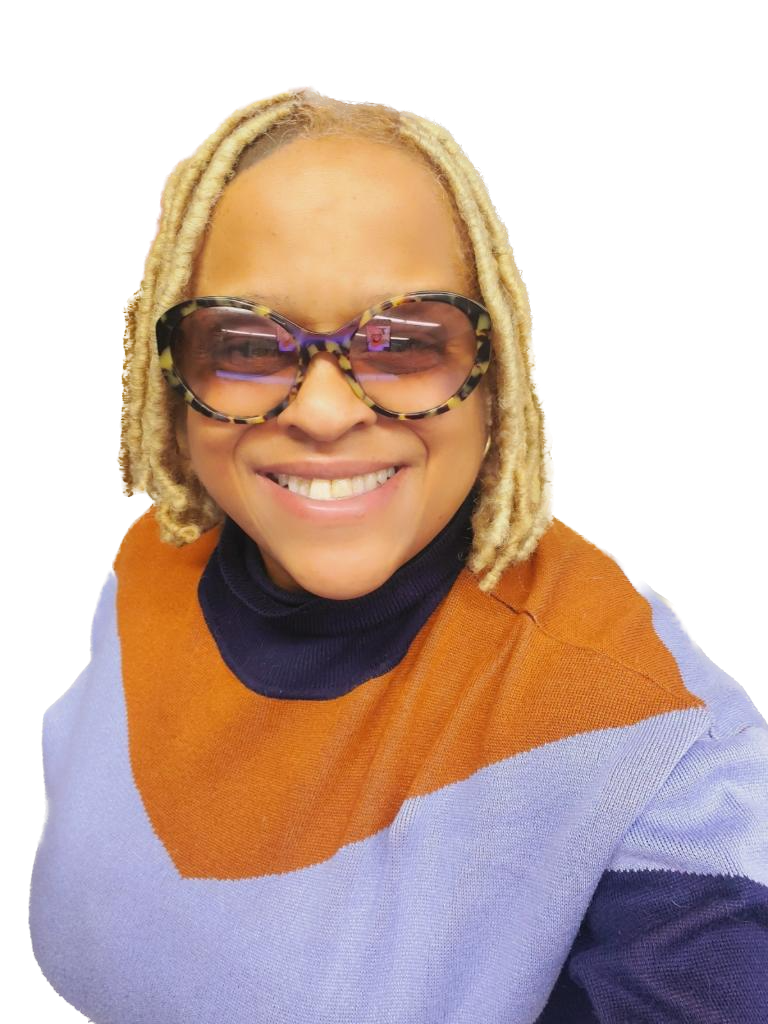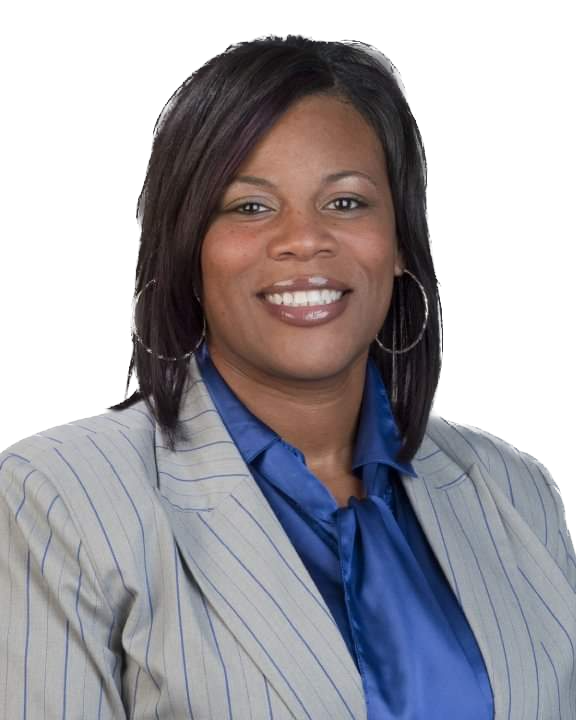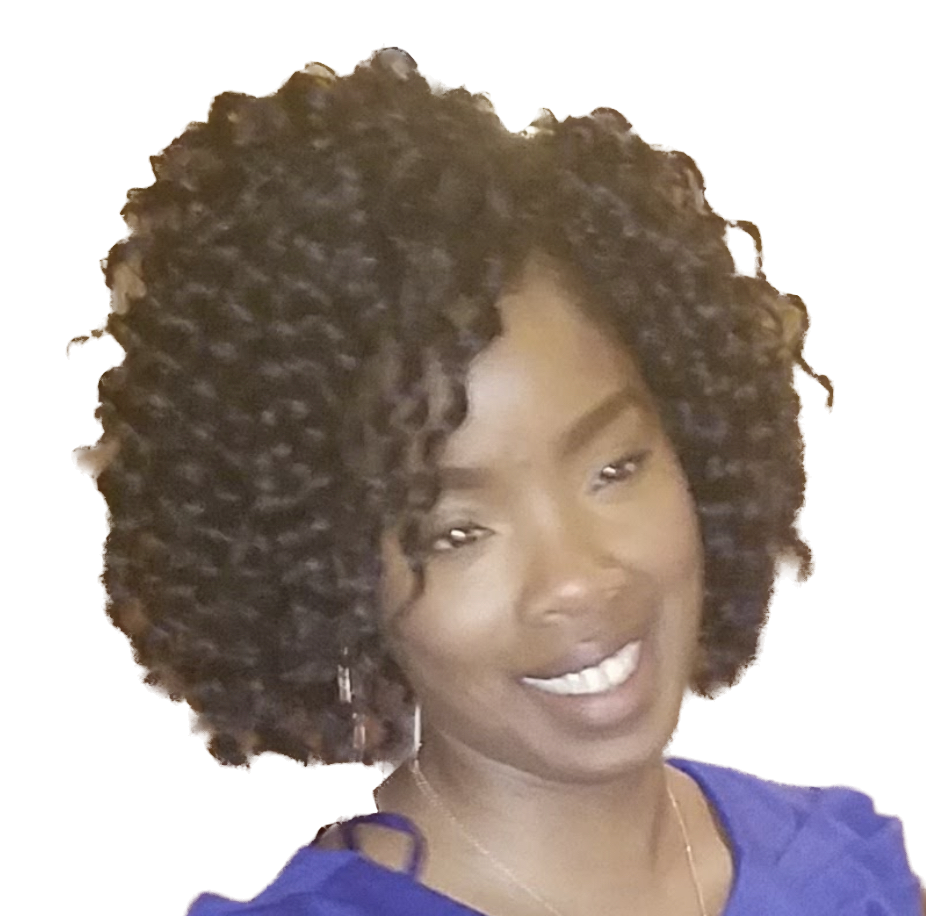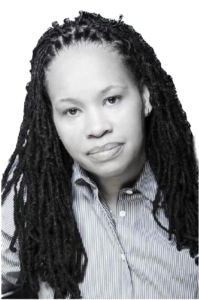
Leadership: Bridging the Gap In Sisterhood
Kesha Townsel, M.S. Ed, SDL. November 8, 2023
"You must give more of yourself for the greater good than just reaping the benefits."

Assistant Principal, New York City Public Schools
Appointing someone to leadership should be an arduous task, but it is often a title given to individuals who are not qualified to lead. History has shown us that some unqualified leaders can be the most destructive, narcissistic, compulsive, and deceptive people you have ever encountered. Leading people is an inherent skill, that not everyone possesses.
This is why some businesses, administrations, and governments fail. The complexity of this position requires considering that your decisions do not affect just you, much like parenting. You must give more for the greater good than just reaping the benefits.
In truth, the women who are best fit for this job DO NOT WANT IT! The responsibilities are vast and knowing that a decision may harm or offend someone can be too great. For women leaders, who are often not supported by other women, being in this role can be lonely.
Being an Assistant Principal, at times, my job can be challenging. And it is not my student population, but those I must interact with and their agendas that make it somewhat difficult. My dedication to the students and my love of self keeps me motivated. I do know that every morning, I thank God for another day to be my best self for the community and the people I serve. It's not easy, but those of us put here to keep getting up, pat that bat, and head out for another day. He built us for it. I encourage those who stay, to find your tribe within those walls. They are out there.
That is why sisterhood in leadership is crucial. Having women around you who support your vision, hold you accountable, or provide logical feedback when you struggle or are completely off base can minimize mistakes, improve morale, and help build and keep a safe place for employees overall. Representation is evident with the right women on your team, and internal and external strength can level the playing field.

Felicia D. Gibbons, M.Ed Education Administrator, Former Assistant Principal-DISD.
November 8, 2023
Leadership Crisis, Or Do Leaders Just Not Know How to Lead?
I have always been told that you manage things but lead people. If so, why are so many managers being placed in leadership positions? According to a Feb 2023 CNBC article entitled The Great Resignation, A record 50.5 million people in the U.S. quit their jobs in 2022. It was the second consecutive year of record-breaking quitting. While the article ascertains that in many cases, people did not abandon the workforce altogether but instead left for remote work and different jobs, the point is they still left.
So, are we experiencing a leadership crisis, and if so, what does a leadership crisis look like? At the risk of oversimplifying, a leadership crisis looks like someone overseeing people but not being willing to grow the people they lead.
I don’t believe happy employees leave happy places, so I ask you to consider the lack of leadership. If one wants to look at why some establishments are more successful than others, start with the culture and climate created from the top, and let’s be honest, the top consists of too many leaders who don’t know how to lead or see those they lead as competition.
As an educator, I stayed at one campus for over nineteen years. It was not because the opportunities to change locations did not arise, but because of the leadership. When I worked part-time at a retail clothing store, I stayed way past the time it took to make a few extra dollars to get out of debt, because the leader there was equally amazing.
As I look at the leadership status quo as it is, I cannot help but reflect on the leadership characteristics in both situations. Both leaders were fair and smart. They were fierce, courageous, filled with integrity, considered to be masters in their respective fields, and oh yeah, they were both women! Women who were willing to grow those they led. They built positive cultures by pouring into their team and fostering an environment where people were unafraid to voice concerns, make suggestions, and implement innovative ideas. Despite the different job descriptions, both leaders were willing to credit the entire team for the successes and take the hit for the failures.
In the past, men in leadership were often deemed competitive and petty, and willing to maintain an upspoken rivalry to keep themselves in a position of power. But now, as I look at this leadership crisis as it is, too often those same characteristics are being emulated in the women in leadership positions. Women leaders, like the two I mentioned earlier, used to prioritize creating a family-like culture where workers felt appreciated, but now the family environment is more environment than family.
The appointed leaders of today appear more willing to give blame and take credit! It is almost as if today’s leaders fear that teaching someone the same skills and giving someone other than themselves the credit they possess will call into question their leadership (or lack thereof). Too often, today’s leaders feel that by claiming their seats, there is no more room at the table.
So, what’s the solution? If you are a leader today, especially a woman leader, the first step is to stop seeing everyone as a competition. I mean, what’s for you will be for you, and the fact that there are superstars on your team does not mean you are not the superstar. Second, be willing to be your sister’s keeper. Teach her how to enter the doors you had to kick down gracefully. Third, be ready to evaluate the culture and climate you are creating. Talk with your team. Ask the tough questions like, does this feel like a place of growth? Are new ideas welcomed? What changes can I, as the leader, be willing to implement, and most importantly, how can I help you grow and develop your destined assignment? If you want a positive work environment, as the leader, you must create it. This may not be baseball, but if you are the leader, it is your job to create the perfect field of dreams.


Fostering Leadership and Sisterhood: A Path to Empowerment
Hon. Dionne Brown-Jordan, M.S. Psychology November 8, 2023
"The future of sisterhood and leadership in South Brooklyn is bright. Community empowerment takes center stage in the vibrant heart of Assembly District 46 as plans are being made for an exciting new initiative designed to foster unity, mentorship, and leadership among the women
in our neighborhood."

State Committeewoman for the 46th Assembly District, Brooklyn, New York
The Impact of Women Leaders in My Life
This article is dedicated to the influential women of what “Sisterhood” and “Leadership” began and still look like for me: My mother, Mrs. Patricia Brown, Mrs. Dortha Nevels, Mrs. Sally Goode, Mrs. Shirley Edmunds Tanyhill, Mrs. Vernice Allen, Mrs. Gloria Nunn, and Mrs. Carrie Stewart. The 1970s were a time of social and political activism, and these women, living in New York City Housing Authority (NYCHA) buildings in the Coney Island section of Brooklyn with their families, actively worked to address issues such as housing inequality, educational disparities, and safety concerns. To formally effect policy change, they started an organization called Mothers of Action. This “sisterhood” of women community leaders set an example for me at an impressionable age to be a model for practicing confident and ethical leadership.
Pay It Forward: Mentorship and the Sisterhood Legacy of Leadership.
Living in NYCHA in Coney Island, Brooklyn, during the 1970s was a complex experience for these women. Economic challenges in the United States marked the 1970s, and Coney Island was no exception. Women like my mother and the other “Mothers of Action” faced limited employment opportunities, and when they were able to find work, wages were typically low. This era saw a significant gender wage gap, which made it even more challenging for women to support their families: economic hardship, community bonds, safety concerns, and a strong sense of resilience defined this era. Women like the Mothers of Action played pivotal roles in supporting families and communities, often with limited resources, while actively participating in movements for positive change. Many were responsible for child-rearing, household management, and supporting other family members. This dual burden of work inside and outside the home was a significant challenge. The Women of Action displayed remarkable resilience in the face of adversity. They often maintained hope for a better future, striving to create opportunities for their families and the community. I strive to continue the legacy they passed on to me and help other women do the same.
Finding the Hidden Leadership and Sisterhood Gems in Our Communities.
Throughout my 34-year career in the Human Resources Administration and the political sector, I had creative ideas I wanted to share. Still, I needed to be more open to being a public speaker. Though I am an introvert, I am professionally obligated to speak publicly in my line of work. One day, I came across a Bible verse in Exodus 4:10, where Moses said to the Lord, “But, Lord, I am telling you, I am not a good speaker. I have never been able to speak well. And that hasn’t changed since you started talking to me. I am still not a good speaker. You know I speak slowly and don’t use the best words.” Then the Lord said, “Who made a person’s mouth? I am the one. I am the Lord. So, go. I will be with you when you speak. I will give you the words to say.” The chapter mentions that Moses stuttered and was ashamed to speak. One might say that I was a “hidden gem” because of my fear of sharing my thoughts in front of audiences. Though I didn’t speak with a stutter, just the thought of me speaking publicly would make me stutter! So, I practiced and prayed on it until I improved and became more comfortable speaking in front of strangers. I determined that speaking publicly and getting my messages directly went hand in hand.
Today, I am proud to share that I can speak eloquently, with grace, humbleness, and assurance. I embrace knowing I am being observed and must lead with integrity, honor, and uprightness. I am thankful to the many sisters in leadership roles who continue to encourage me as an elected official to grow, build on my strengths, and improve on the things that challenge me.
Leading with Authenticity: The Unmatched Power of Women Supporting Women.
Every woman is gifted and can be a capable leader within her home, family, community, friend circles, church, or workplace. My idols include my forever First Lady Michelle Obama, the effervescent and brilliant Stacey Abrams, and political greats like Letitia James and Annette Robinson. I saw how poised and self-confident these women were and how they commanded attention whenever they spoke. I studied them and found my lane and platform. I opened my eyes and mind to understand that I stand on the shoulders of these fantastic sisters and so many others. We depend on each other to carry the baton of those before us. This is what Sisterhood Leadership is all about.
EmpowerHer: Coney Island Sisterhood and Leadership Program.
The future of sisterhood and leadership in South Brooklyn is bright. Community empowerment takes center stage in the vibrant heart of Assembly District 46 as plans are being made for an exciting new initiative designed to foster unity, mentorship, and leadership among the women in our neighborhood. The forthcoming “EmpowerHer: Coney Island Sisterhood and Leadership Program” promises to be a dynamic platform where women from diverse backgrounds can unite to inspire, support, and elevate one another. Under Dionne Brown Jordan’s visionary leadership, this program is poised to build on the Mothers of Action program founded by the powerful women in Coney Island in the 1970s to bring about a positive transformation in the lives of women by cultivating their potential and encouraging each one mentored to become leaders they were born to be.

Women In Leadership: A Gift Or A Curse
Y. Chantz, BA SLP, SHRM CP, November 8, 2023

Viewed as a privilege for some or a task for others, leadership is what the role of the leader makes it. Vicarious experiences of witnessing and being an observer of women in executive roles have ranged from inspiring to discouraging. Recently, there seems to be a refreshing sweep of women in leadership that is quite auspicious and promising to note. For many years, leadership has been the function of men to predominately navigate consistently with repeated large-scale errors and all.
In government, the role of women as the best choice to lead is underscored by the noted increase in prominent positions. The U.S. President deemed it wise for him to appoint women of color as most of his team to be those in place to make the most important decisions, serve as advisors and counsel him on world matters, and assist in running one of the “super nations”. Recent electoral victories in Atlanta acknowledged that anything is possible when women lead campaigns. In NYC, the current mayor (Adams) designated an all-female team of women to lead the city in various sectors of city government as Deputy Mayors.
Women (of color) are burgeoning in leadership roles. Recently, a black woman was appointed as the Assistant Commissioner of the agency where I am employed, and it makes me proud to have her there, knowing what the contrast to her predecessor was. I am given a sense of vicarious dignity by her representation.
In instances where I have navigated leadership roles (personally and professionally), it has always mattered to me that we all win and still feel whole throughout and about the processes. Understandably, having to lead is about more than delegating and having the final word on decisions. Being able to receive quality perspectives genuinely and providing space for feedback garners trust and loyalty, which is of utmost necessity when being a leader.
In my personal life as a mother, I lead my family with an all-inclusive heart and mind. Meaning it’s important to me that everyone is given the platform to be heard and seen, rather than the stance of “I’m mother, you do what I say.” In my professional life as an HR manager and on other days as an instructor, I lead with the same understanding of my responsibilities. I want to be present for the effectiveness of the goal at hand at the time and be a part of the process, along with those who look to me for answers.
As with the reality of balance, there is also the egotistical, adverse realm of women in leadership roles. Many of those afforded the opportunity have grasped it with the proverbial chip on their shoulder, accompanied by something to prove. Utilizing the advantage of “right,” they believe they may have been “wronged” by others who are not even part of their past trauma. Then, there are situations where egregious guidelines are put in place to support what management or leadership deems as a new way of doing things, whether beneficial to the whole unit, department, or company or not. Disparaging, implicit biases and negating comments in meetings are the unfortunate actions displayed when leadership roles are mismanaged, misunderstood, and unwarranted.
Be all as it may, the role of leader amongst women (and men) is an honor, not for the faint of heart or those with only subjective views. Whether of a garden club or a country, being a leader entails having the following look at you for the ability to provide practical understanding and guidance, or simply “the way.” Granted as a sought-after position or attained by default, a woman’s goal in leadership should be geared around having an adequate positive foundation and, when necessary, benevolent, and purposeful actions towards betterment and change.

Be Brave
j. Monique gambles, lmft, mfa
november 8, 2023

"Not only were you selected, appointed, set apart, and given a title that affords you access to information, but access to the most precious commodity---people."

Being a leader is a privilege. Not only were you selected, appointed, set apart, and given a title that affords you access to information, but access to the most precious commodity—people. With leadership, there is power. When a leader understands that power starts within, the team is successful. When power becomes about others, the leader controls their team, and team members do not have the freedom to be, know, and do thus, employee contributions are limited. This type of power diminishes morale and productivity.
Some people should not be in leadership. They struggle with themselves and therefore cannot understand others. Their access to information and people becomes a joyride of destroying others simply because they can. It’s an unfortunate dynamic. Their use of power is used to disempower others instead of empowering others. They took privilege for granted.
I developed the concept and ultimately created The Truth About Sisterhood Digital Magazine to expose the struggles that women have with each other and to create growth opportunities and ultimately healing. As we approached this issue of leadership, I gave the contributors the topic with the caveat that this is not about bashing other women in leadership. Sure, some articles shed light on troubling experiences, but ultimately the goal is to learn from these shared experiences and, as leaders, correct problematic behavior, starting with us.
Imagine if women felt safe enough to share their light. To walk into rooms and be treated equally to men. For trans women to be called by the gender they identify with and not purposely misgendered because someone is worried about the fate of their soul. Minding one’s business is free, and it costs nothing to be kind. On the leadership journey, treating someone who can do nothing for you with respect and building healthy relationships should be the norm and not the exception to the rule.
Women in America and many other nations are second. Ideas, contributions, and accomplishments always seem to be cloaked in something that takes away from how great women are. Passion is defined as aggression. Emotions are unwelcome. And the pressure from societal antiquated beliefs forces women to dim their light and the light of their sisters. As leaders, women must do better because of the obstacles they do face. How women choose to treat one another when privileged by leadership must be done with love. There is no other way.
Women
Belong
In leadership.
"So excited about this endeavor. . .There was no sisterhood when I was moving up through the ranks. I was supported and promoted by men."

dr. sarah jandrucko
Houston, Texas
Women in Leadership: Break the Glass Ceiling by Using Your Voice for What’s Right

Sonya Parker Goode, CLC, CAMS-I
Director of Community Outreach
Grant Halliburton Foundation November 8, 2023
“What I want young women and girls to know is: You are powerful and your voice matters.”
~Kamala Harris, Vice President of the United States
For many women, the glass ceiling represents the invisible barriers that prevent them from advancing or succeeding in top leadership positions. While the types of positions women hold in the workforce have certainly changed over the years, the stereotypes, and biases that women face are still undeniably present. Emotional, bossy, and moody are words commonly used to describe strong female leaders. Unfortunately, this type of patriarchal thinking undermines a woman’s right to adapt to the role in which she has worked hard to achieve and can ultimately diminish self-confidence.
Leadership roles can also be lonely for women who often find themselves in positions where they experience isolation, the pressure to conform, and a lack of support. There is also the responsibility of balancing family, work, and social life, which can lead to burnout, exhaustion, and depression in some cases. As a life coach, I encourage women who struggle in these areas to build supportive networks of individuals who can help them navigate challenging situations and connect with other like-minded women so they can share knowledge and experiences. It is equally crucial for women to prioritize self-care, not just self-maintenance. Self-care is not selfish; it can lead to better mental health and reduce feelings of loneliness. Lastly, I challenge women to speak up against stereotypes, promote diversity and inclusion, and create spaces for themselves and others that are supportive and nurturing.
Unfortunately, we live in a culture where race and ethnicity also play a major role in how women leaders evaluate themselves and how others often evaluate them. Studies have shown that women of color face unique challenges, including conscious and unconscious biases, that can limit their opportunities for advancement and overall success. Over the years, I have heard from several women of color who believe they are seen as a “token” and used to represent diversity in an organization that doesn’t bother to address the overarching systemic issues impacting the work being done. These same women have also expressed that they are perceived as incompetent or less deserving of the position or that they must work harder than their white or male colleagues to prove their worth.
Keeping in line with this thinking, the terms “angry, aggressive, and difficult to work with” have been used to describe women of color, thus making it difficult to overcome the negative stereotypes that perpetuate the harmful idea that Black women are irrational and unapproachable. When it’s all said and done, this kind of labeling only reinforces systemic sexism and racism that undoubtedly harm women of color in leadership positions. Ultimately, these stereotypes can have devastating consequences that impact one’s personal and professional lives.
I recently attended a luncheon where the speakers emphasized the importance of being mindful of the internalized stereotypes of women and girls and being proactive when it comes to addressing these issues through education, reflection, and training. It could be a game-changer for organizational leadership to create anti-discrimination policies that provide diversity and inclusion training and create safe spaces for open and honest dialogue [with women at the table] that promote and break down racial and gender-based stereotypes. By implementing these person-centered strategies, we can create a more equitable and respectful work environment for everyone. However, if we fail to address these issues, we run the risk of negatively impacting the ambitions and aspirations of women and young girls who dream about working in male-dominated careers. These biases can affect their confidence, self-esteem, and overall belief in their capabilities, resulting in limited opportunities and internalized doubt.
So, what can we do to address these concerns? What we’ve learned in the last century is that although we’ve come a long way, we have so much further to go. It is now a much-needed duty and obligation to the future generation to increase awareness and visibility of female mentors, role models, and industry leaders thereby exposing women and girls to more opportunities and inspiring them to pursue their chosen career paths; to foster self-esteem and confidence that encourage women and girls to believe in themselves and their abilities and avoid internalizing false stereotypes that sabotage their potential based on what other’s think or say about them; to advocate for intersectionality that recognizes the diverse perspectives and experiences of women and girls and ensures that we take into account race, culture, age, and the many other dimensions of intersectionality; and to confront stereotypes by dismantling any gender-based biases that limit the potential of women and girls.

To Lead, You Must Accept That Your Power is Personal-Otherwise, It’s Just Nasty Work
Most are familiar with the overused term, White Privilege, which I learned about more in-depth while earning my graduate degree. But it is not the only privilege that individuals believe is inherent. Money, socioeconomic status, and biological gender can all equate to a form of privilege that can be used advantageously, depending on the user. I find this quote, to sum up what happens when an individual places a certain value above the value of others simply because of a physicality: “When we identify where our privilege intersects with somebody else’s oppression, we’ll find our opportunities to create real change,” Ijeoma Oluo, American Author.
“White Privilege: Unpacking the Invisible Knapsack,” written by Peggy McIntosh in 1988, was an assigned reading in my Family of Origin course. I struggled with the essay. One, White Privilege is a thing, and two, a Caucasian woman wrote the essay – purportedly with passion. I wasn’t imagining when I witnessed some Caucasian women use said privilege for advancement, power, or to keep others behind. The author pointed out that Caucasian women have this unearned privilege, carrying around this invisible bag of goodies that affords access to a plethora of advantages with no worries. Yet, the implication that these women are still not taken seriously by their male counterparts, was jarring. They are oppressed and undervalued simply because of gender, and many live in oblivion that they are oppressed and yet are consciously oppressive to non-Caucasian women. European/American societal views have supported this “brainwashing, Stepford Wives, fall behind the man, need a man” ideology that, even today in the United States, some Caucasian women and some women of color utilize. These women often shrink themselves, mask their gifts, and trash other women who do not make false adjustments.
In contrast, a significant percentage of African-American women, Caucasian women, and other women groups do not follow this ideology. These women can be the breadwinners in their families, free thinkers, or women who raise their children independently of a male present in their homes and are identified as modern women. Historically, many African American women were taught from the start of civilization: African women ran empires, “matrilineal kinship existed” (Narayan), and “women were part of secret societies and were taught they had personal power” (African Religions). Perhaps many of these concepts migrated with West African women who were part of the Trans-Atlantic Slave Trade because that part of African American history and culture was experienced by some boys and girls at an early age when encouraged to use terms of respect like Big Mama, and Mama Dear, associating with the concept of women and power or who to look to when it came to who holds a family together; hence, they believe African American women historically, are cherished, uplifted, and recognized for their contributions to African American culture.
The strength and power of a woman are not exclusive to only African history because one can also make the valid point that other women leaders ran empires as well (Lewis). But unlike African women, with the exception of Native American women, “whose leadership thrived well before Europeans stumbled across America” (The History of Indigenous Women’s Leadership), this is not celebrated as much as it should be in ways that are uplifting but rather viewed incorrectly as not the norm.
Leadership and power go hand in hand. Women in power or leadership are often judged more harshly than their male counterparts—they are labeled mean, coldhearted, and ruthless as they ascend via hard work, education, and experience. Rightfully, I support women in leadership roles. I have worked for some fantastic, talented, intelligent, gifted, personable, and highly regarded women with a solid grasp of personal power. I learned something from each of them.
In my 30-plus years of employment, I discovered however, that when personal power is not recognized, honed, or cultivated, a woman in leadership, regardless of race, can find herself exploiting other women or exacting her power over other women. It is often demonstrated through their privilege. For them, privilege equals power, evidenced by the argument and claim that those with privilege are often in leadership positions and have the power to advance agendas, hold others back, and create unsafe spaces. Those leaders fail to see power as something within rather than this outward exertion, often about control. It is problematic and likely that this power trip creates an environment that can be described as toxic in a workplace. The leader has not done self-work nor does she understand power. Even though women in leadership have it rough already because they must prove themselves repeatedly, when they have not worked on themselves or recognized that thier power is personal, their hard work is overshadowed by unknowingly or knowingly perpetuating a toxic environment, damaging good people, and reducing productivity. When women do this to other women, the outcome is Nasty Work. And it goes against sisterhood, empowerment, and legacy.
Nasty Work, a psychologically damaging perspective for those caught up in the hype, is the amalgamation of privileges used to damage other women—women who are frequently considered part of subcultures that have perceived lessened power. They bully, spread rumors, exclude, isolate, and weed out women they either personally do not like, women who are more talented, or women who do not fit into their ideas of what a woman should be.
Like many women, I have been exposed to Nasty Work throughout my professional career: teaching and marriage and family therapy. While teaching, I was deployed to support Operation Iraqi Freedom. Returning home, I presented awkwardly. I had the outward appearance of strength and confidence. Still, inwardly, I was battling with post-traumatic stress—sleepless nights, anxiety, and feeling doubtful and unsure about how to navigate life properly. I was distant and struggled to connect with others.
My first encounter with Nasty Work set in place a series of events which then catalyzed changing how I would eventually become…Empowered. It happened when I was chosen as the Pre-Advanced Placement educator at a High School in Irving, Texas. The hiring principal candidly told me that he had put me in a precarious situation because the Dean of Students and the English Department Chair disagreed with his hiring selection. I was subjected to an unwarm welcome, my experience and credentials were doubted, and my choice of literature selections and content was challenged. I was an outcast. Not only did this occur with non-people of color, but two female African-American peers reminded me of this every chance they had. I remember feeling small and odd in that teaching position. In one meeting with many of my coworkers, the department chair admonished me when I asked a simple question. I was embarrassed. Hurt. My coworkers laughed while one Caucasian woman recorded the incident. Luckily, the one who recorded the incident had a change of heart and gave me the recording to make an official complaint. During another incident, a peer, a woman of color, began a game and made fun of my sexuality behind my back after we disclosed similar life experiences to one another. One by one, she and many other English teachers began the game of look at me/she’s looking at me due to my awkwardness.
Desperate to understand how this related to my PTSD diagnosis, I shared my experience with my therapist. My sessions were painful trying to explain this game to my therapist. She thought I was being paranoid because I could not find the words to convey to her in my sessions what was going on: The popular, privileged women were bullying me. My words were jumbled in my head, heart, and body. I was reliving past traumas.
In retrospect, I was hypervigilant and attuned to everything around me, but I was unaware of my ability to pick up spirits or lousy behavior that resembled those past traumas. Thankfully, I never accepted her assessment and lack of clear and present evidence of a paranoid disorder. The therapist never clinically diagnosed me with that condition because, to her, I did not meet the criteria. In her evaluation, she never invalidated my experiences. She likely struggled with believing this could happen at my place of employment—my chosen career at the time—valid response.
Our work together would eventually lead me to unpack most of my traumas. During this time, I was vulnerable, and I foolishly believed that women naturally stood together. Strong women raised me; my sisters and I, including my two female cousins, were taught the value of family, sisterhood, and personal power. I felt like I was in an alternative reality, knowing that what I was taught was not what I was experiencing. I had no way of expressing this in a way that made any sense. That was in 2013. Ten years ago.
But the most troubling experiences with Nasty Work happened while I was becoming a licensed Marriage and Family Therapist and throughout my experience as a therapist. It began during the summer of 2017, before the Unite the Right Rally, when Caucasian males with tiki torches took over Charlottesville, Virginia. I was about a month in at my internship site and a peer and I had a conversation about Hitler’s wife or life partner, Eva Braun. This colleague revealed to me that she was fascinated by their love story and wanted to read about Eva Braun’s role in the historical events surrounding the Holocaust. Her reading the Autobiography of Eva Braun so boldly in my space felt like a message, a challenge, or a reminder of her unearned privilege. As the events around Unite the Right unfolded all over the news, another Caucasian woman argued, without reservation, that the Caucasian males had a right to march because the marchers perceived they were losing power to minorities. These conversations caused me anxiety because I began to realize that some Caucasian women use subliminal messages of oppression. At the same time, some have become gatekeepers, and many of these women become leaders in the workforce. Some will not argue against the concept of white supremacy because it protects their privilege. Often, their gatekeeping keeps qualified people of color, disabled people, and other marginalized groups at a disadvantage. Some might even argue against affirmative action because it threatens their privilege. All of this, without considering their gender, ironically, is keeping them behind. They have failed to understand that their power is personal, and with personal power, there is an innate refusal to accept that you are weaker, stronger, or better because someone else has told you that you were.
After graduating and passing my state exam, I landed at an agency run by a Caucasian woman. She requested half of my earnings to supervise family visits for the family courts because I was a recent licensee, and to be clear, this is standard practice for new graduates or licensees in the private sector. But being offered to be the handywoman to earn more compensation seemed like a stretch. I was not assigned therapy cases, as that was for the other counselors and the owner. I left that company after she mistakenly said something that fringed on biases. After signing the end of my contract, she mentioned she was worried that I would file a discrimination case. When I told her I had no intention of doing so she informed me that I was ineligible for rehire. Although I thanked her graciously, our final meeting: Nasty Work. Was some unearned privilege displayed at my expense because I challenged her biases, and parting ways was best? I could forget about a favorable future job reference and that felt like it was her power move.
My next job was exciting, and I worked hard and was recognized for my work ethic and loyalty. Despite my dedication, I experienced and observed many Isms: racism, sexism, colorism, and heterosexism. I was promoted to a lead therapist, but not before an African American female social worker in a leadership position and an African American female mental health professional used their privilege of heteronormativity to spread a rumor (reminiscent of the game) about me regarding my sexuality. This is a typical bullying trope amongst African Americans. You cannot be considered a “black queen” if you’re not married to a black king or if you are not in the market for one.
I was the subject of a careless and unethical campaign, maligning my womanhood, and severe damage was done to my professional reputation to the point that many of the clinicians accepted the rumors instead of reflecting professionally. They did not examine my credentials, experience, family life, or affiliations—only my sexual preference, which is a discriminatory act – according to law. The seperation from the company included and EEOC complaint that was handled by a Caucasian woman who told me not to look at any of the women. It sounded like she expected me to work in an environemnt and not notice a woman. I often wondered if she would have told a male the the same thing. I do not compare myself to a man, but some men look at women and comment about woman’s appearance, while some can be downright crass at work and outside of work routinely. Welcome or not. Unfortunately, the attention is considered to be expected behavior that some women view as validation.
In my situation, these women wanted to label me because of my preference. Even though it was a game for them, it was torturous for me. These women were associating me with the deviant and predatory tropes that many LGBTQ+ people face. There is no correlation between deviancy and LGBTQ+ people. Furthermore, cisgender women and transgender women who find other women attractive be it sexually, aesthetically, or intellectually, have not been assigned the societal norm or narrative of outwardly displaying their interest. And while I am rare, I am not an anomaly. To suggest that my preference constituted an interest seems like a poorly displayed view of feminism. Because of my sexual preference, I was being targeted. Because I was not married, did not have children, and I was not interested in adhering to heteronormative expectations, I was targeted. What I wanted was a message sent from the EEOC or HR that behaviors I experienced–the topic of gossip, as well as being followed, watched, and taunted are not the norm in a work environment nor is it acceptable in one’s everyday life. I would have preferred that the unfortunate discriminatory practices be addressed. I was reminded that I had no such privilege to expect fair treatment.
By the time I began my next job, another promotion to Clinical Program Manager, I experienced a blitz of sabotage mainly coordinated by women, who were willing to hear the gossip about the past rumors and spread the gossip and play the game. Professionals who worked directly with me engaged in the rumor spreading but refused to admit it. These individuals smiled in my face, yet behind my back, they discussed the rumor and my lifestyle choices. One African American director, whom I shared my experience with suddenly decided that my clinical judgment, experience, strength, and sense of personal power were not attributes that she wanted on her team; hence, she gave inexperienced Caucasian graduates my job responsibilities, mocked me in meetings, and removed me from significant duties. Nasty work. When her people were in place, one by one, claims that I was the one creating the hostile work environment began taking the form of unearned privilege, microaggression, and oppressive tactics, as some Caucasian female peers complained at her urging. Even some interns were encouraged, and just like that, I became obsolete and resigned.
My entire career and license were in jeopardy. Factually, none of the Caucasian women would ever have to stand before a judge or a licensing board and fight to be accepted for walking in their power. And none of the Heterosexual women of color would have to stand before a judge or licensing board asking to be accepted because of their sexual preference. Heterosexual women of color can count on their privilege of fitting into society’s norms and doing as they please to those of us who are diverse. Nasty Work. Why are some women, and some women in leadership, conditioned this way? How do they justify Nasty Work? How are some able and willing to attempt to reduce another woman into nothingness with such ease and careful planning, whether it be about race, sexual orientation, gender identity, color, or class? Engaging in Nasty Work only dilutes our collective power. It keeps women in a holding pattern where the dominant group (men) gets to decide not only what’s best for our bodies but, overall, our well-being, negating all our hard work to assuredly exist in a society that prefers to keep women a step behind. Not only was this last experience about losing due to white privilege, but experiencing how poor leadership can and will fail when they engage in or allow other groups of women to exert their privilege and power against other women.
Many speak about privilege in terms of black and white because it is undoubtedly an issue that racially divides, but it is not the only issue that segregates. White privilege ignores that privilege oppresses other women who are non-white, but when women of color use those same tactics when it’s convenient for them, they are no better.
I’ve come to accept and acknowledge that my truth may never be accepted. Most people do not see me. They will not recognize that I AM an African American woman of predominantly African Descent, not the trope of being a descendant of enslaved people. Not the trope of associating the LGBTQ+ community with deviancy. I do not operate from those ill-informed cultural contexts. I know who I am. My legacy was established long before my ancestors arrived in North Carolina, South Carolina, and Virginia and long before groups of women decided I was to be the subject of their game.
I hope that women are exposed to responsibly accepting and using their power and that each will continue to cultivate their strength and teach other women how to do the same. Indubitably, society would benefit. Indeed, we will have built a sisterhood. That’s leadership.
Work Cited
Britannica, The Editors of Encyclopaedia. “African Religions”. Encyclopedia Britannica, 24 Sep. 2023, https://www.britannica.com/topic/African-religions. Accessed 22 October 2023.
Lewis, Jone Johnson. “Medieval Queens, Empresses, and Women Rulers.” ThoughtCo, Jan. 26, 2021, thoughtco.com/medieval-queens-empresses-and-women-rulers-3529750.
Narayan, Anjana. “Matrilineal Society”. Encyclopedia Britannica, 17 Aug. 2018, https://www.britannica.com/topic/matrilineal-society. Accessed 22 October 2023.
“The History of Indigenous Women’s Leadership.” www.Representwomen.Org, 23 Oct. 2019
Tell Us What You Think
Being a part of a sisterhood. . .
November 20, 2023
Being a part of a.sisterhood is very important to and for women. I am impressed with Dionne Jordan Brown having the vision and taking the reins that God has given her. EMPOWERHER
Rev. Linda Cherry
Response from The Truth About Sisterhood
Thank you for your support! Dionne is an amazing woman and we are thrilled that she has submitted an article to our Digital Magazine! We hope that she will continue to contribute to this amazing movement of healthy SISTERHOOD!
No Title
December 22, 2024
Review of November Home Page – 2024
Hey thetruthaboutsisterhood.com,
Time is ticking. A groundbreaking AI tool—powered by Google’s secret tech—is live, and the price is climbing with every purchase.
If you’re ready to:
Skyrocket Your Traffic: Let the AI find the perfect keywords and content strategies.
Create High-Converting Content Fast: From social posts to sales pages, done in seconds.
Earn Anywhere, Anytime: No camera, no fancy skills, no team needed—just results.
Now is the moment to act. This is your shot at unlocking a secret advantage that your competitors don’t even know exists.
Grab your access now before the next price bump: https://www.dollartip.info/googlesecretai
Don’t wait—every second counts!
Kathleen Bruce
UNSUBSCRIBE: https://www.dollartip.info/unsubscribe/?d=thetruthaboutsisterhood.com
Address: 4789 Simpson Square
Cherokee, OK 73728
Kathleen Bruce
No Title
December 22, 2024
Review of November Home Page – 2024
Hi,
I just visited thetruthaboutsisterhood.com and wondered if you’d ever thought about having an engaging video to explain what you do?
Our videos cost just $195 for a 30 second video ($239 for 60 seconds) and include a full script, voice-over and video.
I can show you some previous videos we’ve done if you want me to send some over. Let me know if you’re interested in seeing samples of our previous work.
Regards,
Joanna
Unsubscribe: https://removeme.live/unsubscribe.php?d=thetruthaboutsisterhood.com
Joanna Riggs
No Title
December 21, 2024
Review of November Home Page – 2024
Hey thetruthaboutsisterhood.com,
Congratulations!
You’re invited to watch this special video where you can start generating your first online income for just a few minutes of work!
You will discover how you too can start drawing dollars from a Little-Known Loophole in the internet…
Just by using nothing but your laptop!
Everything will be explained here: https://www.moredollar.info/wealth
This video will expire within 24 hours so watch it know before it’s too late!
Chat soon,
Jeffrey Robinson
UNSUBSCRIBE: https://www.moredollar.info/unsubscribe/?d=thetruthaboutsisterhood.com
Address: 4618 Boone Street
Corpus Christi, TX 78476
Jeffrey Robinson
No Title
December 21, 2024
Review of November Home Page – 2024
Hi there,
Looking to improve your website’s local rankings? We offer Country Targeted Backlinks to help you dominate your niche. With backlinks from high-quality, local domains, your website will see increased relevance, traffic, and authority in your chosen region.
Check out our service here:
https://www.digitalxflow.com/country-backlinks/
Or chat with us on WhatsApp: https://www.digitalxflow.com/whatsapp-us/
Best regards,
Mike Sven Schmidt
Dgital X Flow Team
Mike Sven Schmidt
No Title
December 20, 2024
Review of November Home Page – 2024
Salut, ech wollt Äre Präis wëssen.
Harrymiz
No Title
December 19, 2024
Review of November Home Page – 2024
MERYTRH4405432MAVNGHJTH
NARETGR4405432NEHTYHYHTR
No Title
December 16, 2024
Review of November Home Page – 2024
Have you bought your Christmas presents yet?
www.geotrott.com
Lorri Mariano
No Title
December 15, 2024
Review of November Home Page – 2024
Hello,
for your website do be displayed in searches your domain needs to be indexed in the Google Search Index.
To add your domain to Google Search Index now, please visit
https://SearchRegister.net
Search Engine Index
No Title
December 14, 2024
Review of November Home Page – 2024
So it’s not a money printer, but this is the closest (legal) thing to it.
And no, I’m not talking about a crazy gimmick that works 1% of the time.
This is a profit-churning system that runs like Swiss clockwork,
And it’s been expertly refined for one purpose:
To create as many millionaires as possible…
Which means this system is designed to work for anybody – even if you have no marketable skills.
Input some effort and wads of CASH will come flying out.
You can find it here : https://www.bizopphand.info/7figurelaunchsystem
Your heart is free, will you dare to follow it?
Use wisely,
Francis Stanley
UNSUBSCRIBE: https://www.bizopphand.info/unsubscribe/?d=thetruthaboutsisterhood.com
Address: 21 Freedom Lane
Stockton, CA 95204
Francis Stanley
| Content | |
| Design | |
| Easy | |
| Engaging | |
|
Average
|
|

|
|